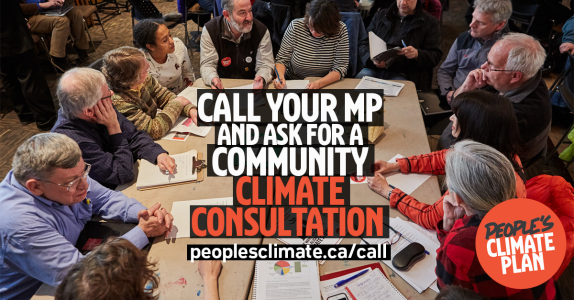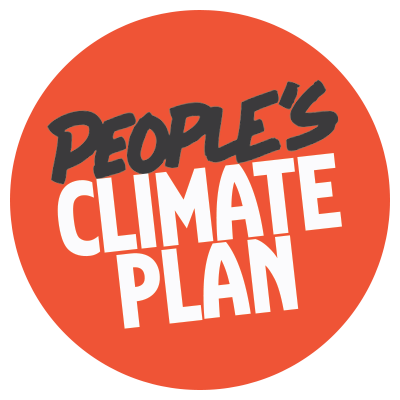Blog post by Diane Connors
The excitement in the building was felt through the crowd – one of the first federal government consultations on climate change with Minister McKenna was well over capacity, with hundreds of people ready to tell the government to take action on climate change for a new economy and new future based on principles of justice and science.
After the rush of the election in October, Canadian society has breathed multiple sighs of relief with the loosening of government hold over public discourse. Scientists have been unmuzzled, the Prime Minister will take questions from the press, and we are seeing attempts at public consultations on large and important issues such as the Trans-Pacific Partnership and now on climate change. After almost a decade of increasing secrecy and unilateral government action, Canadians must feel comforted that our government seems to care about the opinions and desires of citizens.
However, in the journey to a better democracy we must ask ourselves – what do we expect of our government in terms of seeking out and valuing public input. Now that we have empowered a government that purports to be more socially democratic, what does that look like? How do we expect to convey personal and community visions of the society we want to those we have vested with power? How are those visions turned into action? One way to begin would be to ensure that consultation processes on climate change are inclusive, transparent, and meaningful – and that they are held.
The first town hall climate consultation with Minister McKenna was a good start. It was organized by the government, designed in a way to elicit feedback from participants, and wide participation was encouraged thanks to the outreach efforts of citizens and NGOs to bring attention to this event. The event had a great turn out despite being announced on short notice, and with little promotion from the government. This consultation seemed to kick off a nationwide process, despite there being few other events announced, and no apparent central coordination for more consultations. Some MPs have shown an interest in moving forward with consultations, a few have said they will meet with their constituents, but many have not said anything. An interactive website was launched to collect written feedback from the public – though this is no substitute for consultation, especially since it is not clear how this feedback will factor into creating a National Climate Plan.
The ideal nation-wide consultation scenario is to mandate each Member of Parliament to hold a town hall type of meeting in their riding. As much as it is the responsibility of citizens to communicate with our MPs, it it also our elected representative’s responsibility to find out how their constituents feel about major issues like a National Climate Plan; they have the staff and financial capability to organize the whole community. It really shouldn’t be the responsibility of citizens and NGOs to organize these types of events – though it is always wonderful and often of excellent quality when they do. At the moment, the government is placing the onus on citizens to organize subsequent town hall consultations on climate change – we must let them know our expectations are higher than that. We must raise the low bar set by our previous government and ask for MP-led consultations.

When organizing consultations, government should give ample notice and information should be easy to find and advertised to the community. Ideally, resources should be provided so that members from every facet of their community would have the opportunity to attend (for example, transportation and accommodation for those living far away such as in large ridings of the north, child care for parents, holding the event in an accessible venue). The consultation process should have some clarity on how the public input is being incorporated into a National Climate Plan. Town hall consultations should be free and open to the public with opportunities to meaningfully interact. Additional consultation must be done with Indigenous communities as a separate citizenry and stakeholder with certain rights and considerations.
We have an opportunity now to tell our government these simple standards are what we expect. Call your federal Member of Parliament to tell them it is their responsibility to hear the voices of their constituents on the vitally important matter of climate change, and they must hold a town hall for their constituency. Many are already agreeing to hold townhalls – join the nation-wide community that is standing up for the climate and calling for a democratically created People’s Climate Plan based on justice, science, and a new economy. Call up your Member of Parliament – call them to action, call them to obligation, call them to tell your story, and that you expect Canada to act boldly on climate change. Get them used to hearing your voice – this is the democracy we expect.
Click here to call your MP right now!
Diane works with the Council of Canadians out of Edmonton, Treaty 6 Territory. She is currently working on holding her MP accountable to the People’s Climate Plan, participating in Break Free, amplifying grassroots voices for the “Grandmothers Holding the Red Line”, and supporting the push for a fracking moratorium in Alberta through ABFRAC. She loves writing, making art, and being out the land.
